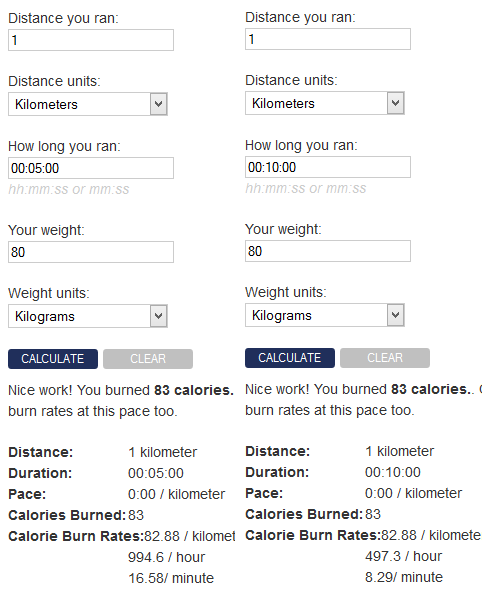Nope, not in any sense, and not even if you were jogging in a vacuum, and could convert fat & carbohydrates anaerobically with 100% efficiency, to kinetic energy.
For a start you'll have Air resistance / drag, it's one of those Newtonian external forces, and it's effect is disproportionate (cube of your velocity), so the faster you move the more energy you need to expend to counter it. Sprinting 100m will consume more energy than walking it. Normal drag caused by the surface you're running on, and gravity due to the gradient you're running up / down are also external forces that will affect calories burnt.
Your body will also consume the: phosphocreatine, glycogen, and glucose available in your blood / mussels, before aerobically targeting your fatty acids (fat) reserves. So duration and your body composition will impact where your body decides to grab the required energy from, and as your body requires more Oxygen to convert fats to energy, you need to consider this. Once the phosphocreatine, glycogen, and glucose are depleted a VO2 (Volume Oxygen consumed) figure can be used to approximate calories / fat burned. Which highlights another body composition / fitness factor, the more laboured your breathing and the higher your heart rate the more calories you're burning. So fitness plays a role, or VO2max as it can be quantified.
Also worth a read:
